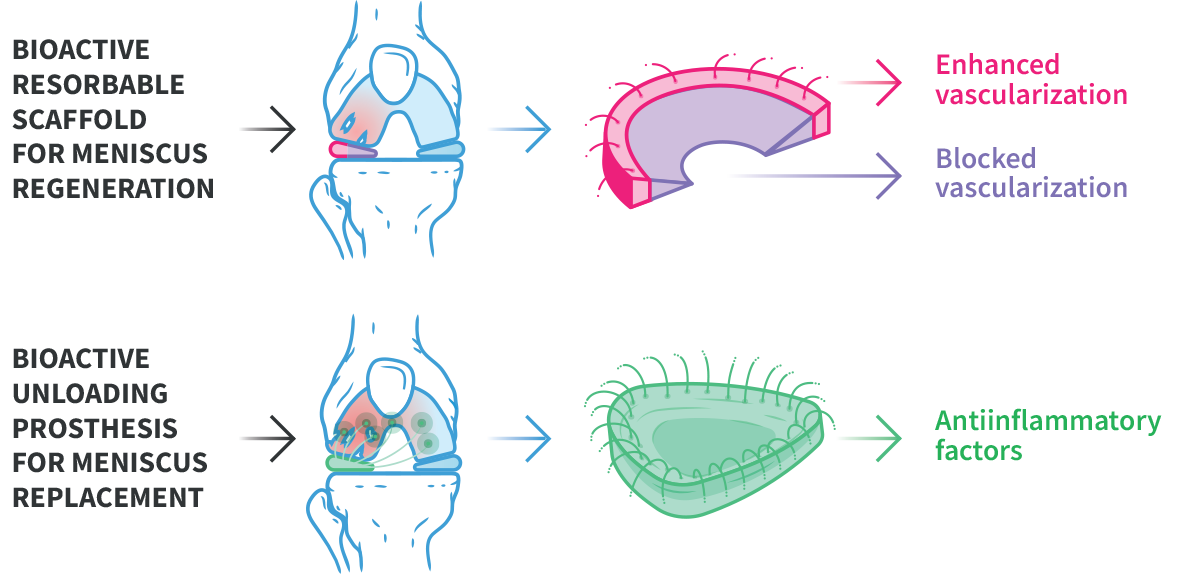For most of the 20th century, the preferred approach to meniscus treatment was the removal of the damaged tissue (meniscectomy). This practice expanded with the advent of arthroscopy. In recent decades, the understanding of meniscal function, and consequently the management of meniscal injuries, has evolved and gained increasing commitment among physicians towards the preservation of the meniscus whenever possible.
However, based on the fact that meniscal resection is still widely performed, a huge rate of post-meniscectomy osteoarthritis can be expected in the European population in the coming years. In particular, the treatment of osteoarthritis in younger patients is challenging, often involving early replacement of the patients’ knee joints, which later represents a social and economic burden for national health systems.
